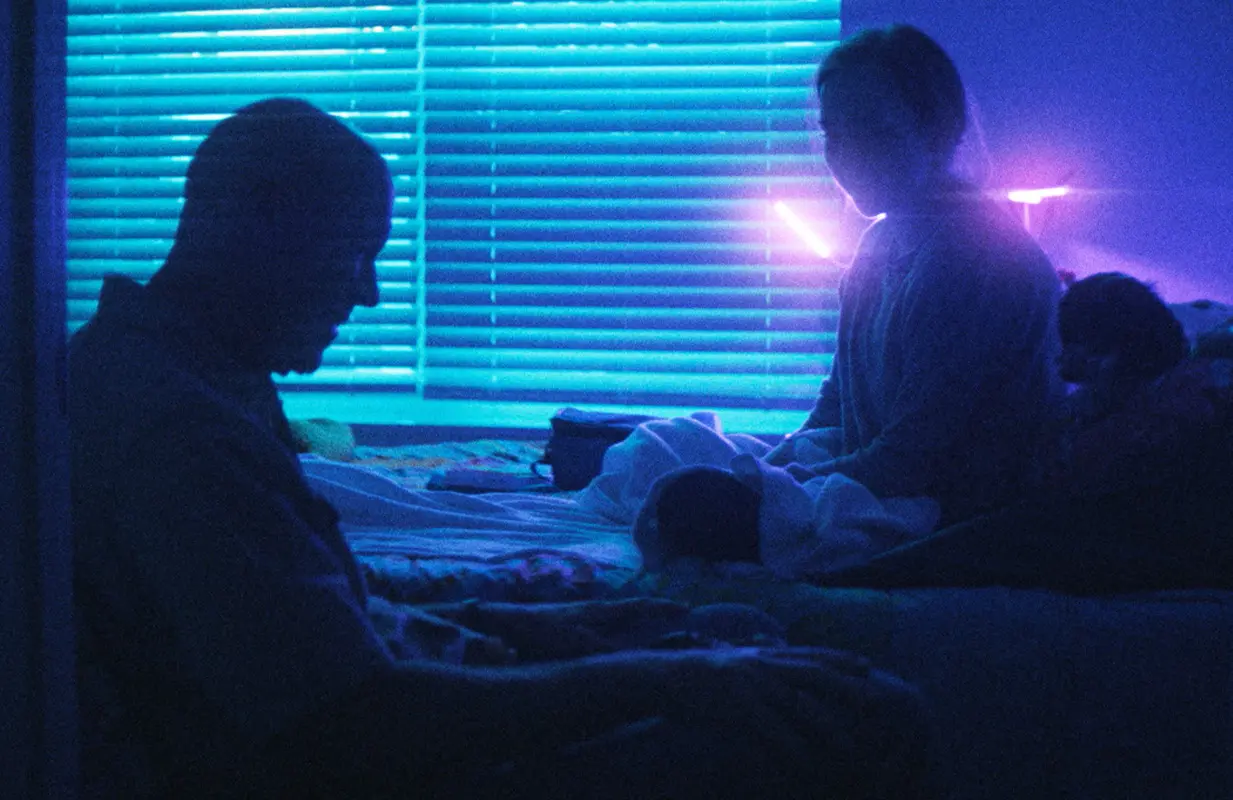FX's Spermworld Wades Into the Choppy Waters of Family Planning
-
 Spermworld (Photo: FX)
Spermworld (Photo: FX)“I look at this as making a cake. They have all the other ingredients. They’re the one that bakes the cake. I just bring flour to the mix.” This is how Tyree, one of the subjects of Spermworld, sees his role as a sperm donor. The FX documentary, co-produced by the New York Times and Edgeline Films, takes a deep dive into the world of unregulated artificial insemination where, instead of going through official sperm banks, people use designated Facebook groups to chat directly with potential donors. The parties then meet up and either try to conceive naturally via sex (one woman likened it to a “horrendous one-night stand”) or use samples and syringes.
The documentary primarily centers on the lives of three donors: Tyree, a mechanic who served time in prison; Stefan, a recently divorced 65-year-old; and Ari, a “super donor” who claims to have fathered 138 children. Viewers also get to know Rachel, a 28-year-old with cystic fibrosis who tries to conceive a child with Stefan and develops a complicated intimate friendship with him. Spermworld director Lance Oppenheim could have taken a cut-and-dried approach and painted his subjects as purely altruistic or totally irresponsible. Instead, he chooses to tackle the nuances and complexities of this unregulated system.
Each of the men has their own personal reasons for choosing to donate, but they all cite a desire to help people and feel like they’re making a difference. None of them get paid except for Tyree (who doesn’t always charge), and they don’t appear to expect sex from the arrangements. “Giving back is a huge theme in my life,” Stefan says. But can donating sperm really be as simple as, say, giving blood?
The boundaries of his relationship with Rachel, who’s been unable to get pregnant despite months of them trying, also become increasingly blurred as they spend more time together, watching movies at his house and having deep conversations by the pool. Although he does seem to genuinely care for her, it feels like he’s relying on her companionship to fill the void of loneliness after his divorce. Later, he admits that he might have become a donor not only to help others, but also because it makes him feel “wanted and needed.”
Tyree reflects on his father, whom he claims had at least 25 children, and insists that his own motivations for being a donor are completely different. His dad was “addicted to pleasure,” he says, while he just wants to help people. But, just like with Stefan, being a donor comes with complications. While he already has four biological children, he and his fiancée Atasha are struggling to conceive a child of their own. Although Atasha maintains that she’s fine with him being a donor, she admits that he doesn’t always provide the amount of support she needs from a partner. Her feelings only grow more complicated when she has a miscarriage later.
Then there’s Ari, who seems like he has an almost compulsive need to keep fathering children. Despite already having a whopping 138 biological kids, he considers skipping Passover with his mom, who has terminal cancer, to go donate instead, insisting, “I could make this woman’s dreams come true!” This isn’t a no-contact situation, either; he actually wants to be present in his kids’ lives and constantly travels to visit them. But with that many, it’s impossible to even remember all of their names, let alone attend 138 different birthday parties. His friends call it an addiction, and his mother wishes he would live a “normal” life. Still, he maintains that he’s happy with his choices. “There’s all different ways to measure wealth,” he says. “My bank account would tell me I’m poor, but if you measure wealth in love and joy, I’m richer than Elon Musk.”
The documentary tackles a variety of complex questions and nuanced situations. For instance, when one of Tyree’s biological children, Italy, is removed from her mother’s custody, he and Atasha suddenly find themselves potentially needing to take her in themselves. “I know this isn’t a reality you and me talked about, but what am I supposed to do?” he asks. Rachel acknowledges that she’s going against medical advice by trying to get pregnant despite her cystic fibrosis, but she wants nothing more than to be a parent. “In society, there’s this idea of who deserves to be a mom and who doesn’t,” she says. But when Stefan asks what would happen to their hypothetical child if she were to die, she doesn’t immediately have a clear-cut answer.
This seems to be the point of the entire documentary — that there are no obvious “correct” answers here. Questions like, “Who should be ‘allowed’ to be a parent?” and “Is it ethical to carry a pregnancy to term under certain circumstances?” will never be simple. Increased attacks on reproductive rights in the U.S., from abortion restrictions to IVF bans, have only further highlighted how complicated pregnancy and parenthood can be. Ultimately, Spermworld doesn’t pretend to have any of the answers, and that’s exactly why the documentary works.
Spermworld is available to stream now on Hulu.
Kelly Martinez is a TV Reporter based in Los Angeles. Her previous work can be found at BuzzFeed and People Magazine, among other outlets. She enjoys reading, spending time with her cat, and explaining the plot of Riverdale to people.
TOPICS: FX, Spermworld, Lance Oppenheim, Documentaries, The New York Times